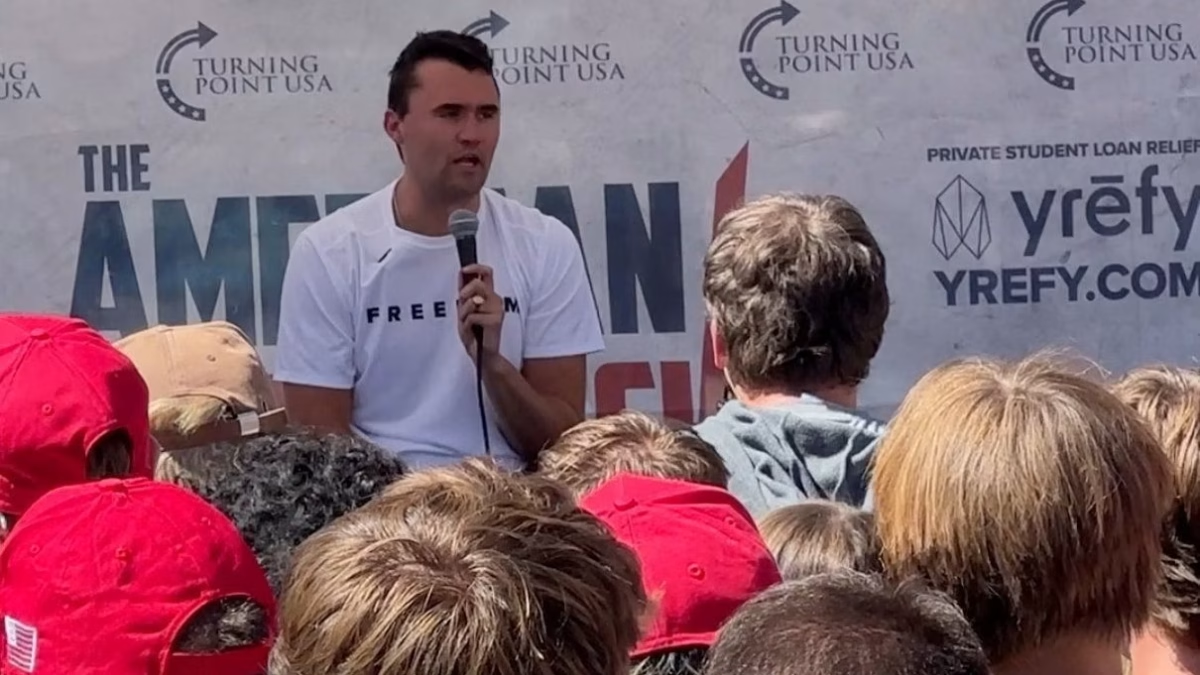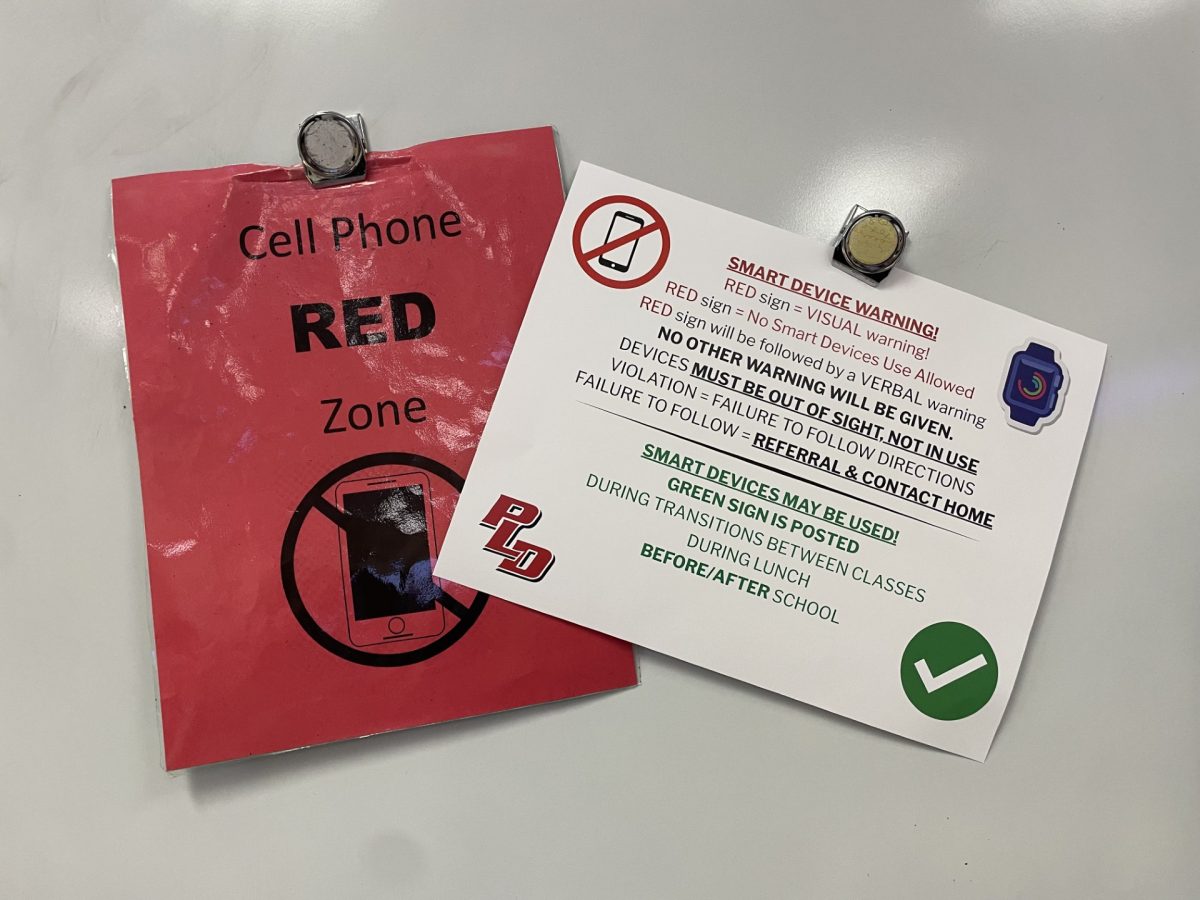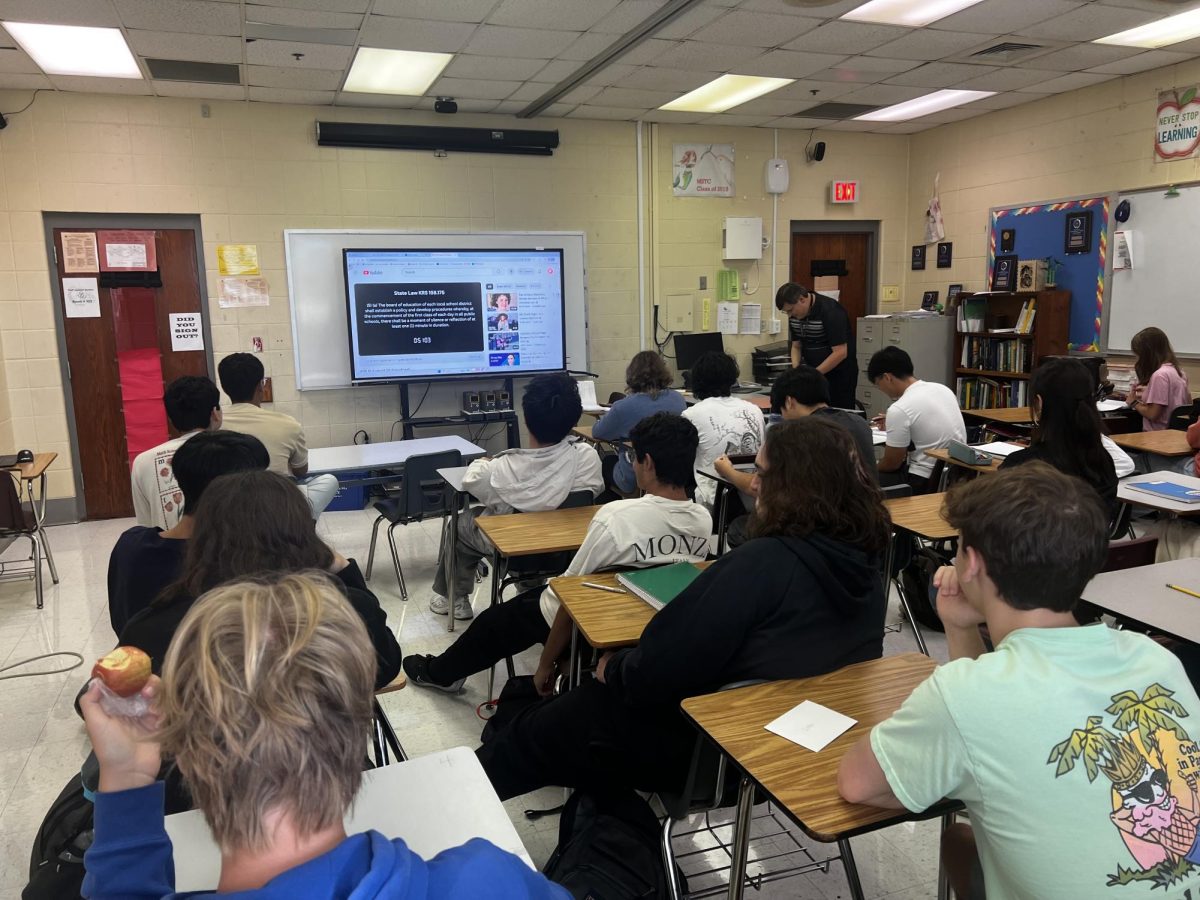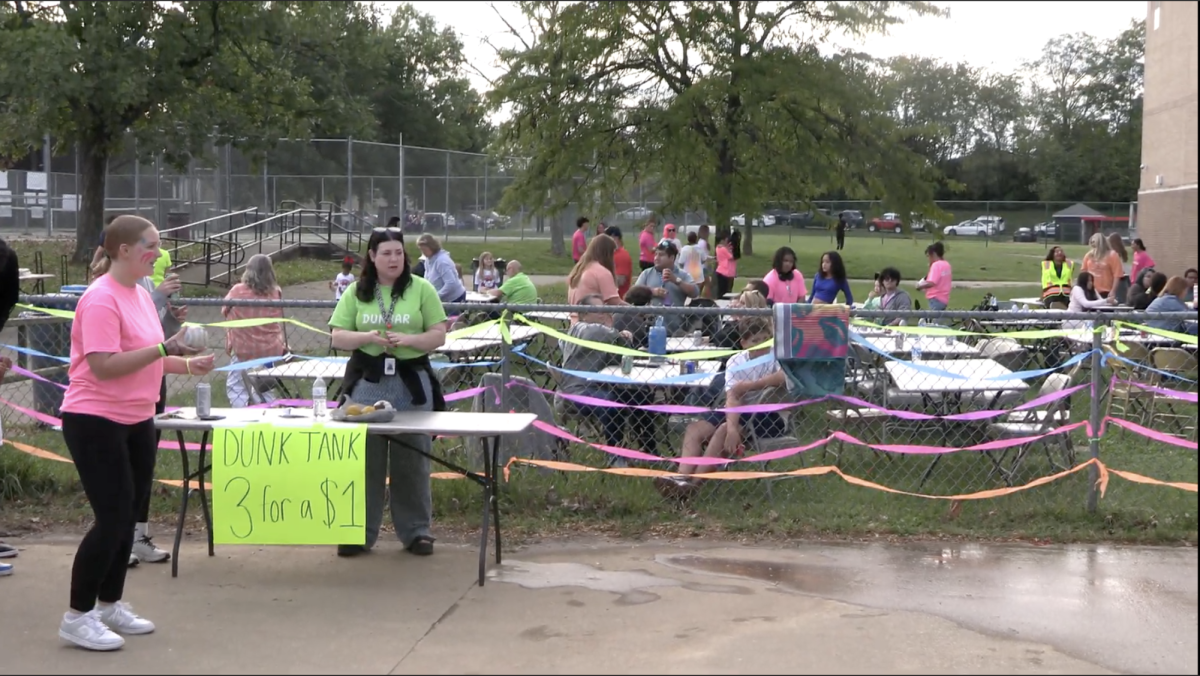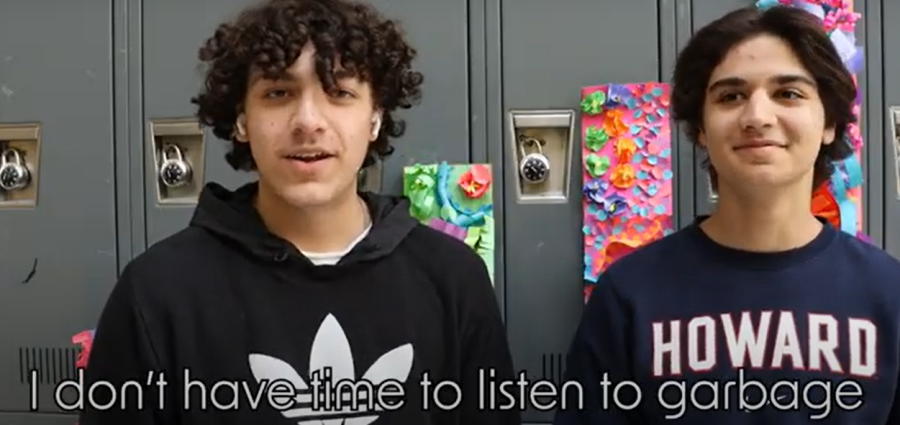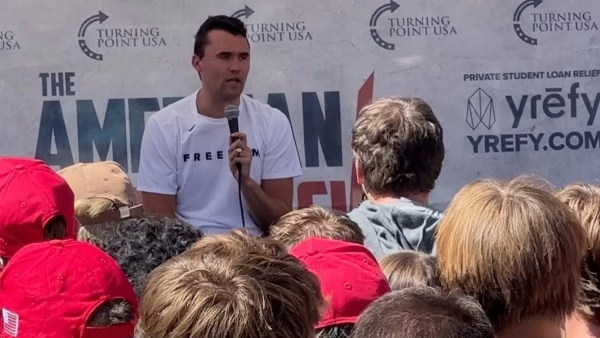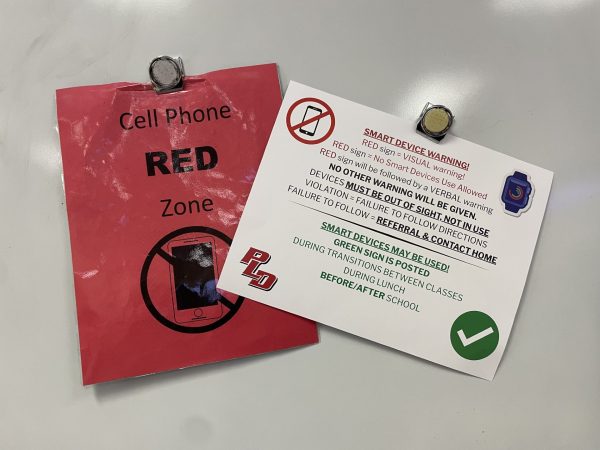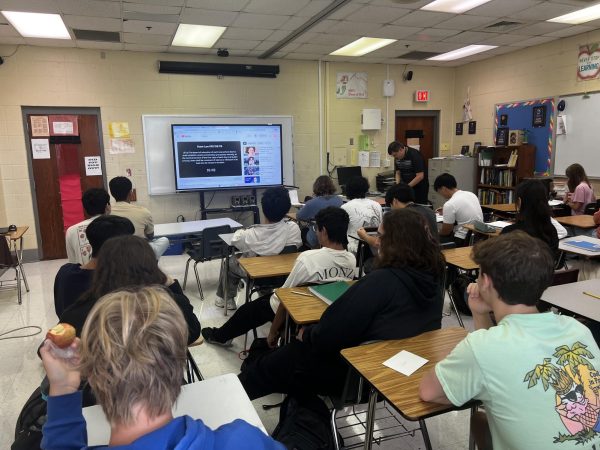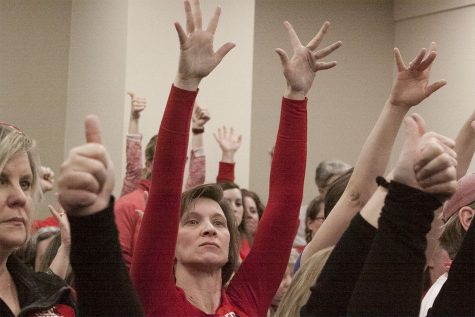Kentucky’s Anti-Conversion Therapy Bill Still Pending
House Bill 199 would prohibit mental health professionals from engaging in conversion therapy. This is the fifth time the controversial bill has been proposed to the legislature.
A Dunbar freshman who asked not to be named shared her fears about revealing herself to her parents.
“I am not out to my family yet, and I don’t really plan on coming out any time soon because I’m scared they will send me to something like conversion therapy,” she said. “I’m just really afraid they won’t accept me for who I am.”
This is a valid concern of many youths in Kentucky and this is why House Bill 199, the Mental Health Protection Act, addressing conversion therapy was proposed to the Kentucky legislature in early January marking the fifth attempt to pass this legislation in the commonwealth. The ban against conversion therapy is the fastest moving LGBTQ rights movement in history, and it has already been made illegal in 19 states.
Republican Sen. Alice Forgy-Kerr is the primary sponsor which came as a surprise to some as it is only the second time for a Republican to be a primary sponsor for bills favoring the rights of LGBT individuals. In addition to Forgy-Kerr, there are seven co-sponsors.
“Conversion, so-called ‘therapy,’ threatens the health, well-being, and safety of many of our young people,” co-sponsor Rep. Lisa Willner, a mental health professional said.
In preparation for the current attempt with the HB 199, a grassroots organization called Ban Conversion Therapy Kentucky formed over a year ago. According to director Tanner Mobley, the organization advocates for vulnerable minors who are being targeted due to their sexual orientation. He said he is optimistic about the bill’s potential this time around due to all the support.
“Kerr has been an absolutely fantastic advocate to the issue and has really been a champion to the bill so far,” Mobley said.
He also stated that he firmly believes that this is not a partisan issue.
As a Christian Conservative Republican, Forgy-Kerr told the Herald-Leader that she feels that conversion therapy is “religion gone bad.” She shared that her 31-year-old son Jamison Kerr identifies as gay and that her passion for banning conversion therapy was ignited after watching the film Boy Erased–a true story about a young man who is forced into conversion therapy by his deeply religious parents.
Even before this eye-opening experience, she said that she was supportive of her son. In a Feb. 12 article by the Herald-Leader, Jamison Kerr was quoted talking about what it was like to come out to his mother–a Republican senator who grew up in the Southern Baptist Church.
“She just opened her arms and gave me a hug while I cried,” he is quoted as saying.
But not all parents are supportive or accepting. A Dunbar senior who asked not to be named shared her personal experience.
“My parents are really homophobic and transphobic and they believe that being gay is a sin worse than murder,” she said.
The bill received national coverage in the New York Times and the issue is still gaining momentum nationwide.
“People are more willing to listen,” Mobley said. “Even if the bill is not successful, at the very least, more people are educated than before and culture is changing in a positive way. People are stepping forward to say that just because someone may be different, it doesn’t mean they aren’t important.”
He said that he believes this is largely due to national attention, non-partisan agreement, and using social media platforms to help spread awareness and to get people active–especially in lobbying.
Kendall Jordan, an intern with the ACLU, organized her first major lobby day for ban conversion on Feb. 13 at the Kentucky State Capitol, and she said it was the largest one that this effort has seen.
“This was a grassroots effort, and it had a significant turnout,” Jordan said. “People from all over the state, including children, attended the lobby day to help pull people into their purpose.”
She emphasized that events like the lobby day are crucial in the creation of change.
“You have to generate attention for your cause,” she said. “Whatever your cause is.”
But it hasn’t been easy. From the very beginning of the planning process, they knew they would have legislators who would not empathize with their cause. Jordan said that the hardest audience was the more conservative members.
“It’s always kinda up in the air what reactions are gonna be from those people,” she said.
However, she said that their efforts were not in vain. “We actually had some really conservative folks who showed their support for the bill which was really inspiring.”
Once the group brought the movement to the Capitol, attendees broke into individual sessions in which each lobbyist met with a legislator. Jordan admitted that the topic was emotional for her, especially when sharing her personal story. As someone who identifies as queer, she said that she understands what it’s like to not be taken seriously.
“It’s a painful but necessary part of the process to stop the repression,” she said.
Many find the bill controversial because they feel that it oversteps boundaries in terms of religious freedom, but the legislation mentions the exclusion of pastors and religious advisors to the bill. Regardless, the director of the Commonwealth Policy Center wrote an op-ed complaining that the bill was unfair towards faith-based counseling.
Mobley said that he understands these concerns. “Our bill is very intentionally narrowly tailored to avoid infringing on religious liberties,” he said emphasizing that there is “no foundation” in Nelson’s argument because it specifically makes exceptions for religious beliefs.
Mobley also said he felt that the protection of a person’s mental health should be a priority.
Dunbar’s Gay-Straight Alliance sponsor Mrs. Amber Faris said that she has had a lot of experiences with LGBT students who have been traumatized by a lack of support from their families.
“That kind of mentality, where you’re automatically telling a child that their identity and how they feel inside is not valid, is one hundred percent damaging to their psyche and their ability to go through life feeling supported,” she said.
Several students in the club said that they are passionate about ending conversion therapy because it could save a lot of kids’ lives. Statistics show that LGBTQ kids are more likely to suffer from suicidal thoughts, the suicide rate has jumped almost 10 percent in the last decade.
Mobley shared that “57 percent of gender non-conforming youth attempt suicide after attending therapy.”
A Dunbar freshman who asked not to be named shared her fears about revealing herself to her parents.
“I am not out to my family yet, and I don’t really plan on coming out any time soon because I’m scared they will send me to something like conversion therapy,” she said. “I’m just really afraid they won’t accept me for who I am.”
Although there are circumstances in which conversion therapy is entered into voluntarily, this treatment is often not undertaken with the consent of the person being targeted–especially if they are minors.
Advocates say that they hope that the bill will help save children from the traumatic practice that has affected nearly 700,000 people nationwide.
While interning with the American Civil Liberties Union (ACLU) Dunbar alum and advocate for conversion therapy ban, Sofia Calleja, did extensive research on the practice. She said that her most surprising finding was the people who felt that their conversion therapy was a positive experience.
“This was the most surprising of it all…there was some expression of a positive aspect of conversion therapy perceived by those directly impacted by the sexual reorientation practices,” she said. But after taking a closer look at the studies, she said that it actually made more sense because of the nature of the vulnerable populations seeking acceptance.
Calleja said that she believes that conversion therapy introduces itself as a group that claims to be able to “heal” people, thus lending itself to creating a community of people who may end up feeling false satisfaction and support.
“Within those same studies they found that the most frequently identified helpful components of conversion therapy could also be achieved through other less stigmatizing and harmful ways,” she said.
There has been a strong unified front working to mobilize this bill, but as of right now the chair of State Licensing and Occupations and the House Health and Family Services committee are planning to hold informational hearings next session. Although it is not confirmed as stagnant, there is no particular indicator to suggest that the bill is moving forward at this time.

My name is Annika Koch and this is my third year on staff and second year on the Editorial Board. I first joined this program as a member of the photography...

